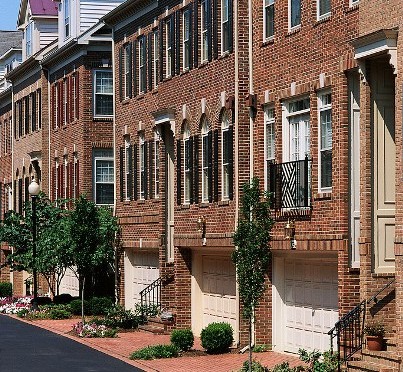For this report we looked at the active, pending (in escrow), and sold stats for Marion, Johnson, and Hamilton Counties for the week of June 30th to July the 6th.
 Marion County was the county having the most properties offered for sale during that week. There were 389 properties listed with an average list price of $129,680. Washington and Lawrence Townships were the leading townships with 62 new listings each. The average list prices for Washington and Lawrence Townships were $218,531 and $213,983 respectively. During that same week, the entire county had 189 properties having an accepted offer (pending sale, in escrow) with an average 67 days of time on the market. 335 other listings closed that week.
Marion County was the county having the most properties offered for sale during that week. There were 389 properties listed with an average list price of $129,680. Washington and Lawrence Townships were the leading townships with 62 new listings each. The average list prices for Washington and Lawrence Townships were $218,531 and $213,983 respectively. During that same week, the entire county had 189 properties having an accepted offer (pending sale, in escrow) with an average 67 days of time on the market. 335 other listings closed that week.
Hamilton County had 176 homes entering the market that week. The average list price for Hamilton County was $299,368. Clay Township had the most properties offered for sale through the local BLC. The average list price for Clay Township that week is $322,314. Clay Township led the county with 44 new listings. Noblesville followed with 41 new listings. The average list price for Noblesville was $289,037. During this time Hamilton County had accepted offers on 100 properties (pending sale, in escrow) with an average marketing time of 66 days. 194 made it to the closing table.
Johnson County had 67 new properties entering the market through the local Central Indiana BLC. The average list price during this time was $231,843. Pleasant Township had the most new listings with 25 and White River Township is following with 22 new listings. Pleasant townships average list price that week was $124,680 and White River Township was $263,185. Johnson County had 38 accepted offers (pending sale, in escrow) after 105 days of marketing. 58 properties closed during that week.
For more detailed information on sales within your area contact the Settle Team for more information.



 Urban renewal is becoming more and more popular. Most of the people moving back in to the urban areas are baby boomers and executives with some free time on their hands. For this reason most of them are choosing to live in a condo. The trend of turning former apartments or an old factory in to condos has helped to turn around some of the urban areas. You can find great homes for reasonable pricing or a top notch location for a higher end price.
Urban renewal is becoming more and more popular. Most of the people moving back in to the urban areas are baby boomers and executives with some free time on their hands. For this reason most of them are choosing to live in a condo. The trend of turning former apartments or an old factory in to condos has helped to turn around some of the urban areas. You can find great homes for reasonable pricing or a top notch location for a higher end price.
 During your vacation stay find out where medical care is located. According to AARP, more than 60% of Americans ages 50-64 have at least one of six chronic conditions such as hypertension, high cholesterol, arthritis, diabetes, heart disease and cancer. Once seniors reach the age of 65, more than 80% are affected by one of these chronic diseases. Close proximity to hospitals, doctors, and medical facilities should be considered when retiring.
During your vacation stay find out where medical care is located. According to AARP, more than 60% of Americans ages 50-64 have at least one of six chronic conditions such as hypertension, high cholesterol, arthritis, diabetes, heart disease and cancer. Once seniors reach the age of 65, more than 80% are affected by one of these chronic diseases. Close proximity to hospitals, doctors, and medical facilities should be considered when retiring.
 In one of my blogs I discussed how to
In one of my blogs I discussed how to  Another thing to look for in your policy is liability coverage that covers not only accidents, but also assault and battery. Regardless of how much we like our neighbors, friends, and family, when we invite them over to our home they may bring with them their personal life we might not know about. If they decide to duke out their disagreement on your front lawn you could be liable for damages or injuries they sustain. You need to make sure you are covered.
Another thing to look for in your policy is liability coverage that covers not only accidents, but also assault and battery. Regardless of how much we like our neighbors, friends, and family, when we invite them over to our home they may bring with them their personal life we might not know about. If they decide to duke out their disagreement on your front lawn you could be liable for damages or injuries they sustain. You need to make sure you are covered.

 Just as in previous years,
Just as in previous years,  Brookside is one of Westfield’s premier neighborhoods with a variety of custom homes. Due to the variety of custom builders building in this Neighborhood you never will have a house that looks the same as your neighbors.
Brookside is one of Westfield’s premier neighborhoods with a variety of custom homes. Due to the variety of custom builders building in this Neighborhood you never will have a house that looks the same as your neighbors. This year the
This year the  The Brookside neighborhood itself is a very diverse and stylish neighborhood with home prices ranging from $600,000 to $1.7 million. Just minutes away from all major conveniences like recreation, shopping, and schools. Brookside is located on 161th Street East of US 31.
The Brookside neighborhood itself is a very diverse and stylish neighborhood with home prices ranging from $600,000 to $1.7 million. Just minutes away from all major conveniences like recreation, shopping, and schools. Brookside is located on 161th Street East of US 31. Every one of the builders being showcased at the
Every one of the builders being showcased at the  Even when you have an open floor plan you still can find corners that will be quite enough for conversation or relaxing. Hideaway spaces like a hidden game room or reading /play room found itself into their design as well.
Even when you have an open floor plan you still can find corners that will be quite enough for conversation or relaxing. Hideaway spaces like a hidden game room or reading /play room found itself into their design as well. Pocket and barn doors have finally made their way back into the Midwest building style. It makes a stylish addition to a home and also will make room for other amenities. Clean lines and simple but stylish décor design helped showcase the builder’s craftsmanship.
Pocket and barn doors have finally made their way back into the Midwest building style. It makes a stylish addition to a home and also will make room for other amenities. Clean lines and simple but stylish décor design helped showcase the builder’s craftsmanship.

 One of the options could be seller financing. During the closing not all of the money is collected that is due to the seller. The seller is taking a promissory note and the title is still transferred to the buyer.
One of the options could be seller financing. During the closing not all of the money is collected that is due to the seller. The seller is taking a promissory note and the title is still transferred to the buyer.
 Getting started in Real Estate acquisition could be a scary and daunting undertaking. When you break it down into small action steps the elephant in the room can get smaller and smaller.
Getting started in Real Estate acquisition could be a scary and daunting undertaking. When you break it down into small action steps the elephant in the room can get smaller and smaller.